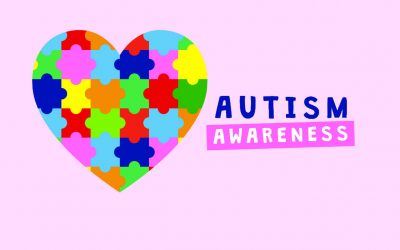Univ. of Chicago Hunts Clues About Autism Genes
By Jim Ritter
When Alexandra Lentz was 16 months old, she wouldn’t point, like other toddlers, or make eye contact.
Rachel Lentz, Alexandra’s autistic older sister, behaved the same way when she was that age. So their mother took Alexandra in for tests, which confirmed that Alexandra also has autism.
Autism is the most heritable neurological disorder. Researchers think there may be at least a dozen autism genes, and two large research projects
aim to find them. University of Chicago researcher Dr. Edwin Cook is
participating in both projects.
Identifying autism genes would help researchers discover what causes
the disorder. Knowing the genes also could lead to drugs to treat autism,
and prenatal tests to detect autism in fetuses.
Dramatic rate increase “Our understanding of the disease will grow
exponentially once genes are identified,” said Andy Shih of the National
Alliance for Autism Research, which is coordinating one of the gene hunts.
Johns Hopkins University is running the other gene project.
Estimates of the number of autistic children range from 1 in 166 to 1
in 1,000. The rate has increased dramatically in recent years, although it’s
unclear how much is due to better diagnosis For example, many children who
in past years were classified as mentally retarded now are being diagnosed
as autistic.
Autism likely is caused by a complex interplay of genetic and
environmental factors, with genes playing the dominant role. For example, if
one identical twin has autism, there’s a 60 percent to 90 percent chance the
other twin also is autistic.
A child normally inherits one copy of each gene from each parent.
Autism might involve mutations of certain genes, or extra copies or missing
copies of certain genes.
Lasts a lifetime Some parents blame vaccines, but there’s no scientific evidence of this, according to the American Medical Association Family Medical Guide. “Doctors do know that autism is not caused by bad parenting,” the Guide said.
An autistic brain appears to be unable to prune unnecessary pathways,
resulting in a signal overload.
Autism usually develops by age 3 and lasts a lifetime. Autistic children have an impaired ability to interact socially. They may, for example, appear remote, resist being touched, avoid eye contact and not answer to their name. They tend to talk in a singsong manner, do the same behaviors over and over, and erupt in titanic temper tantrums.
Rachel Lentz, now 5, is at the high-functioning end of the autistic spectrum. She’s in the advanced class in her kindergarten, has a terrific memory and is doing well academically.
But Rachel does not express herself well. If she’s sad, she can’t say why. She doesn’t socialize much with other kids, and if she finds herself in a room with other people, she might run out.
“She was always in her own little world,” said her mother, Roxanne Lentz, of Naperville. “She loved to be in a room all by herself.”
At age 3, Rachel was given the vague diagnosis of “pervasive developmental disorder, not otherwise specified.” Only later was she correctly diagnosed at the University of Chicago. Rachel has since undergone intensive therapy and is doing better.
Alexandra was diagnosed at an earlier age and began therapy earlier.
“She is doing much better than Rachel did at this age,” her mother said.
Roxanne Lentz hopes the hunt for autism genes “will answer a lot of
questions about how this happened or why this happened.”
Finding autism genes, Lentz said, also could provide reassurance “that
it wasn’t something I did.”
Dr. Cook is looking for families with at least two autistic children
to participate in the studies. For information, call (773) 834-3864.


